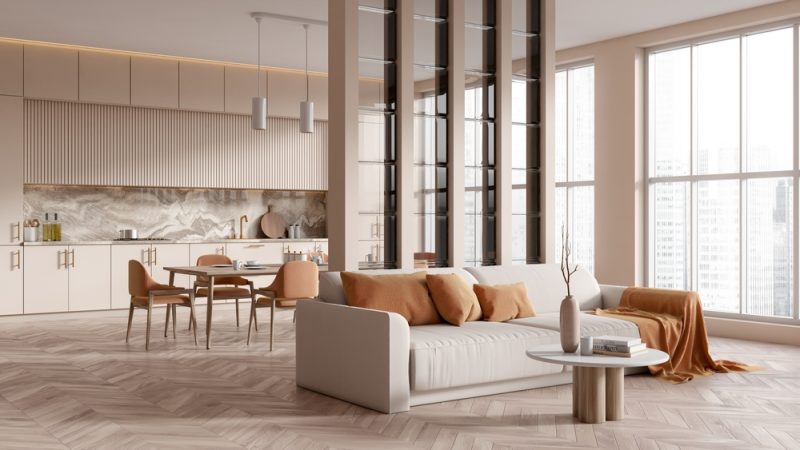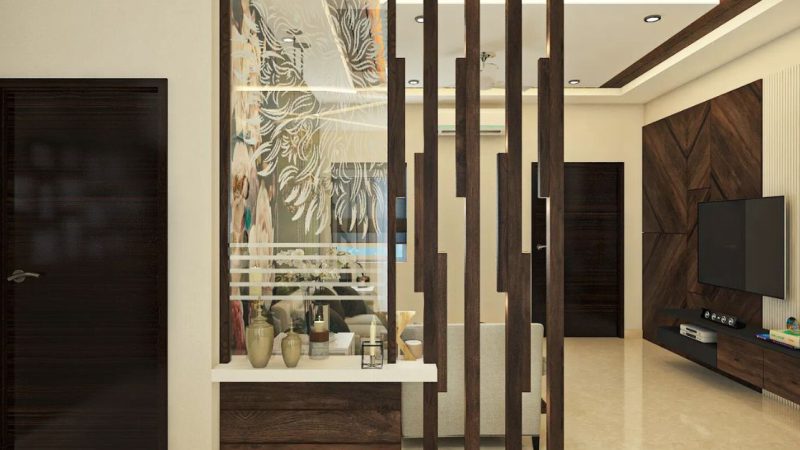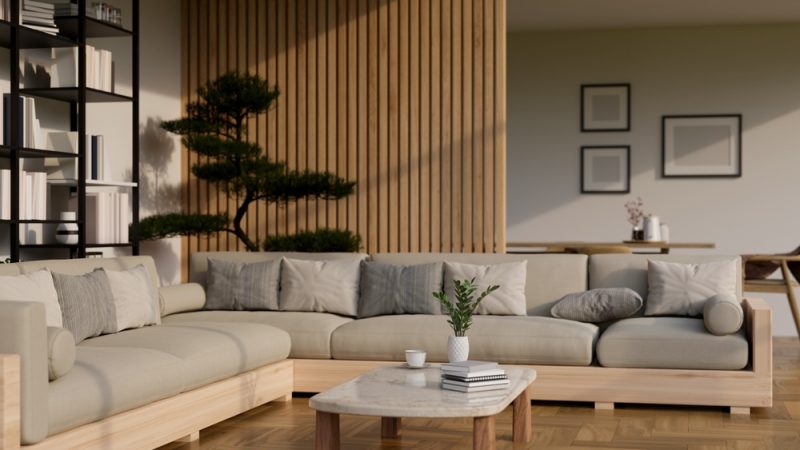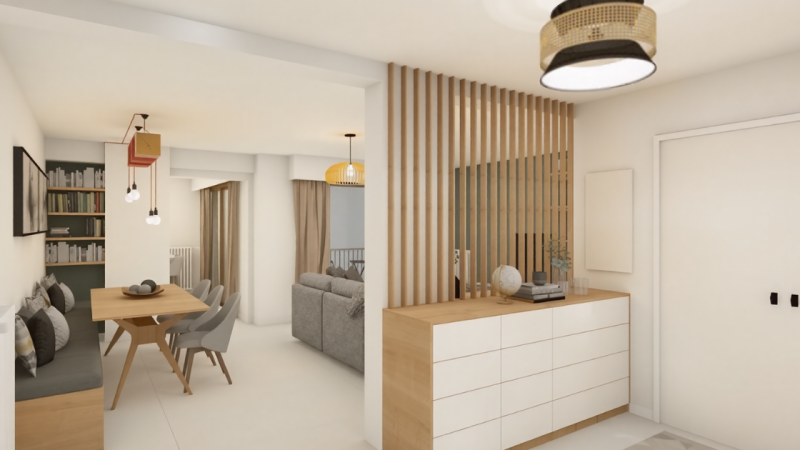How to Use Bookshelves as Stylish Room Dividers
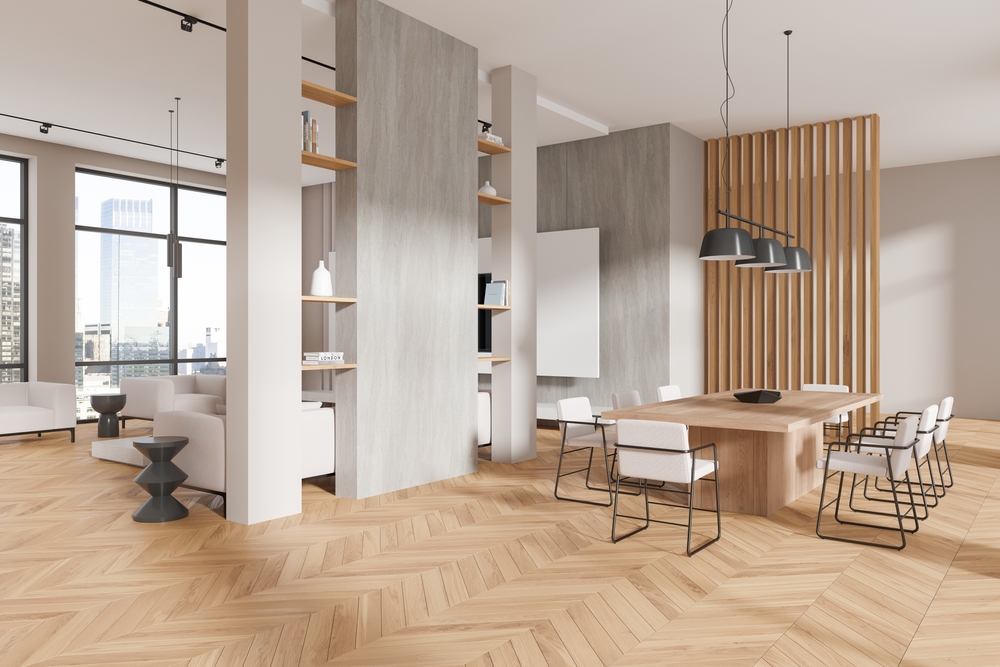
Why Use Bookshelves as Room Dividers?
Bookshelves are a smart way to divide space in open-concept homes, apartments, or offices. They provide structure, storage, and a touch of design without permanent construction. For anyone working with limited square footage or aiming to define functional areas without sacrificing openness, bookshelves offer a practical and stylish solution.
Benefits of Bookshelf Room Dividers
Space Definition Without Walls
Bookshelves let you visually and functionally separate spaces — like a home office from a living room — while keeping light and airflow uninterrupted. You get the feel of separate rooms without closing off areas.
Double Functionality
They’re not just dividers — they also provide storage and display. Use them to store books, showcase decor, hold baskets, or even set up small plants. This makes them ideal for small spaces where every piece of furniture should serve more than one purpose.
Visual Appeal
Whether you go for a minimal, Scandinavian-style shelf or a bold industrial design, bookshelves add vertical interest to your interior. When styled well, they become a statement piece that enhances your entire space.
Best Types of Bookshelves for Room Division
Open-Back Bookshelves
Open-back shelves keep the room feeling airy while allowing you to define zones. They let light pass through, which is key in smaller or darker spaces.
Double-Sided Shelves
These units give access to both sides, making them functional from either room. Perfect for positioning in the center of the space, between two distinct zones like a dining area and a living room.
Floor-to-Ceiling Shelving
This option makes a bold architectural statement and offers the most storage. Use it if you want a permanent solution that also feels intentional and designed-in.
Modular Bookshelves
Modular or movable units offer flexibility for renters or people who love to rearrange their layout. You can reposition or expand them as your needs evolve.
Placement Tips for Bookshelf Partition
Between Living and Dining Areas
This is one of the most common setups in open floor plans. A bookshelf creates a subtle yet clear separation or Partition while keeping the entire space cohesive.
Around a Home Office Nook
If you’re working from home, place a tall bookshelf to carve out a dedicated office area within a larger room. It gives privacy and helps mentally separate work and home life.
Studio Apartments
In studio layouts, a bookshelf divider can create the feel of multiple rooms. Use it to divide your sleeping area from your living or dining space.
Styling Tips to Keep It Aesthetic
Balance Storage and Design
Don’t cram your shelves full of books. Mix in decorative elements like vases, framed art, or sculptural objects to break up the visual weight and create interest.
Stick to a Color Theme
Choose a consistent color palette across books, decor, and baskets. This makes your divider look styled, not cluttered.
Add Plants
Low-maintenance houseplants bring texture and life to your bookshelf. Consider trailing varieties for upper shelves or small potted plants for lower ones.
Use Decorative Baskets or Boxes
Keep clutter hidden by using matching containers to store miscellaneous items. It looks clean and adds texture.
Safety and Functionality
Anchor Tall Units
For shelves over five feet tall, secure them to the wall or floor, especially if you have children or pets. This prevents tipping and improves long-term stability.
Allow for Ventilation and Light
Avoid placing solid-backed bookshelves in front of windows or vents. Make sure your divider doesn’t block airflow or darken the room.
Leave Pathways Clear
Even if a bookshelf is meant to divide space, don’t place it where it obstructs walkways. The goal is separation — not limitation.
What to Avoid
Overstuffing the Shelves
Too many items look messy and make the space feel closed off. Leave some negative space so your room feels open and breathable.
Choosing the Wrong Size
A unit that’s too large will overwhelm the room, while one too small won’t serve its purpose. Measure your space carefully and choose accordingly.
Ignoring the Back
If you’re using a closed-back bookshelf and both sides are visible, paint or decorate the back panel so it’s not just a blank eyesore.
Maintenance Tips
-
Dust weekly to keep surfaces clean and items visible.
-
Rotate and refresh your styling every few months to keep things interesting.
-
Inspect shelf weight limits — especially if you’re storing heavy items like hardcover books.
Design Trends to Try
Minimalist Grid Shelving
Use clean, geometric lines and a monochrome palette. This works well in modern or industrial-themed homes.
Rustic Wooden Units
Natural wood tones add warmth and pair well with earthy textures and neutral color schemes.
Industrial Metal Frames
Black or bronze metal frames with wood or glass shelving offer a sleek, urban look. Great for loft-style spaces.
Floating Shelf Dividers
For a lighter feel, use multiple wall-mounted floating shelves in a vertical line to divide space visually without heavy furniture.
Final Thoughts
Bookshelves aren’t just for storage — they’re a design tool. Use them to break up a room, create cozy nooks, and show off your style. Whether you’re working with 500 square feet or an expansive loft, bookshelf dividers let you define your space on your terms — no construction needed, just creativity.

